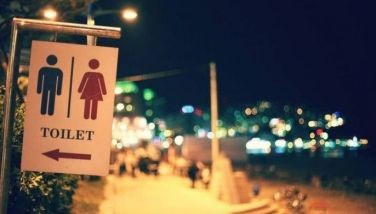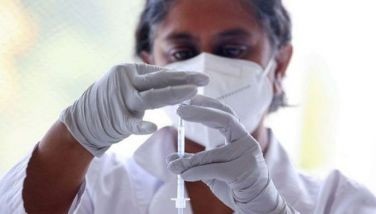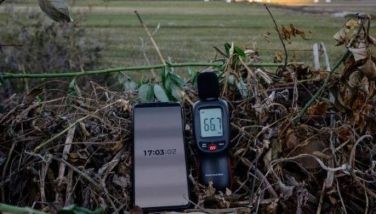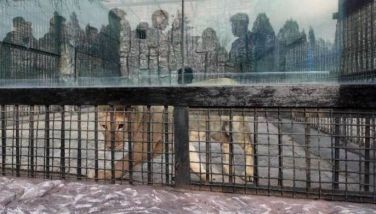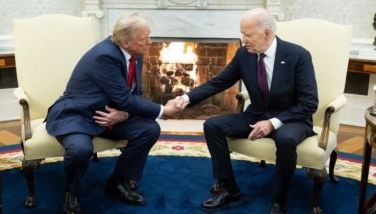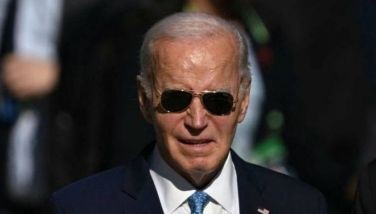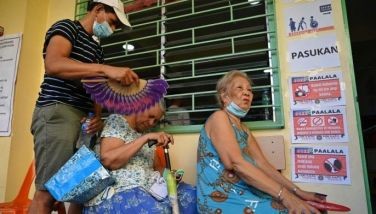Kim Jong Un makes history, crosses border to meet his rival
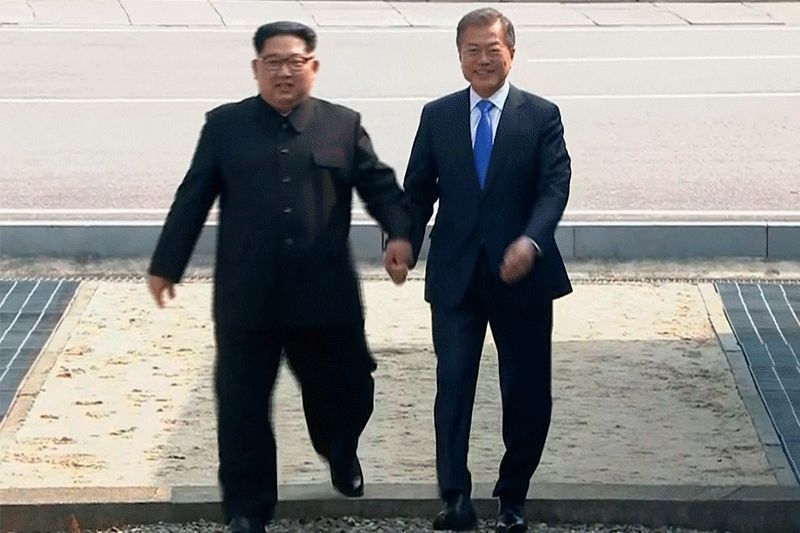
GOYANG, South Korea — With a single step over a weathered, cracked slab of concrete, North Korean leader Kim Jong Un made history Friday by crossing over the world's most heavily armed border to greet his rival, South Korean President Moon Jae-in, for talks on North Korea's nuclear weapons. Kim then invited Moon to cross briefly north with him before they returned to the southern side.
Those small steps must be seen in the context of the last year — when the United States, its ally South Korea and the North seemed at times to be on the verge of nuclear war as the North unleashed a torrent of weapons tests — but also in light of the long, destructive history of the rival Koreas, who fought one of the 20th century's bloodiest conflicts and even today occupy a divided peninsula that's still technically in a state of war.
It was all smiles Friday as Moon grasped Kim's hand and led him along an blindingly red carpet into South Korean territory, where school children placed flowers around their necks and an honor guard stood at attention for inspection.
Beyond the surface, however, it's still not clear whether the leaders can make any progress in closed-door talks on the nuclear issue, which has bedeviled U.S. and South Korean officials for decades. North Korea's nuclear and missile tests last year likely put it on the threshold of becoming a legitimate nuclear power. North Korea claims it has already risen to that level.
Kim's news agency said that the leader would "open-heartedly" discuss with Moon "all the issues arising in improving inter-Korean relations and achieving peace, prosperity and reunification of the Korean peninsula" in a "historic" summit. It's the first time one of the ruling Kim leaders has crossed over to the southern side of the Demilitarized Zone since the Korean War ended in 1953.
The greeting of the two leaders was planned to the last detail. Thousands of journalists were kept in a huge conference center well away from the summit, except for a small group of tightly-controlled pool reporters at the border. Moon stood near the Koreas' dividing line, moving forward the moment he glimpsed Kim appearing in front of a building on the northern side. They shook hands with the border line between them. Moon then invited Kim to cross into the South; Kim invited Moon into the North, and they then took a ceremonial photo facing the North and then another photo facing the South.
Two fifth-grade students from the Daesongdong Elementary School, the only South Korean school within the DMZ, greeted the leaders and gave them flowers. Kim and Moon then saluted an honor guard and military band, and Moon introduced Kim to South Korean government officials. Kim returned the favor with the North Korean officials accompanying him. They were to take a photo inside the Peace House, where the summit was to take place, in front of a painting of South Korea's Bukhan Mountain, which towers over the South Korean Blue House presidential mansion.
Nuclear weapons will top the agenda, and Friday's summit will be the clearest sign yet of whether it's possible to peacefully negotiate those weapons away from a country that has spent decades doggedly building its bombs despite crippling sanctions and near-constant international opprobrium.
Expectations are generally low, given that past so-called breakthroughs on North Korea's weapons have collapsed amid acrimonious charges of cheating and bad faith. Skeptics of engagement have long said that the North often turns to interminable rounds of diplomacy meant to ease the pain of sanctions — giving it time to perfect its weapons and win aid for unfulfilled nuclear promises.
Advocates of engagement say the only way to get a deal is to do what the Koreas will try Friday: Sit down and see what's possible.
Moon, a liberal whose election last year ended a decade of conservative rule in Seoul, will be looking to make some headway on the North's nuclear program in advance of a planned summit in several weeks between Kim and U.S. President Donald Trump.
Kim, the third member of his family to rule his nation with absolute power, is eager, both in this meeting and in the Trump talks, to talk about the nearly 30,000 heavily armed U.S. troops stationed in South Korea and the lack of a formal peace treaty ending the Korea War — two factors, the North says, that make nuclear weapons necessary.
North Korea may also be looking to use whatever happens in the talks with Moon to set up the Trump summit, which it may see as a way to legitimize its declared status as a nuclear power.
One possible outcome Friday, aside from a rise in general goodwill between the countries, could be a proposal for a North Korean freeze of its weapons ahead of later denuclearization.
Seoul and Washington will be pushing for any freeze to be accompanied by rigorous and unfettered outside inspections of the North's nuclear facilities, since past deals have crumbled because of North Korea's unwillingness to open up to snooping foreigners.
South Korea, in announcing Thursday some details of the leaders' meeting, acknowledged that the most difficult sticking point between the Koreas has been North Korea's level of denuclearization commitment. Kim has reportedly said that he wouldn't need nuclear weapons if his government's security could be guaranteed and external threats were removed.
Whatever the Koreas announce Friday, the spectacle of Kim being feted on South Korean soil will be something to behold.
Kim and Moon will be enjoying each other's company in the jointly controlled village of Panmunjom near the spot where a defecting North Korean soldier recently fled south in a hail of bullets fired by his former comrades.
___
AP writers Kim Tong-hyung, Hyung-jin Kim and Eric Talmadge contributed to this report.
___
Foster Klug, the AP's bureau chief for South Korea, has covered the Koreas since 2005. Follow him on Twitter at www.twitter.com/apklug
- Latest
- Trending
















